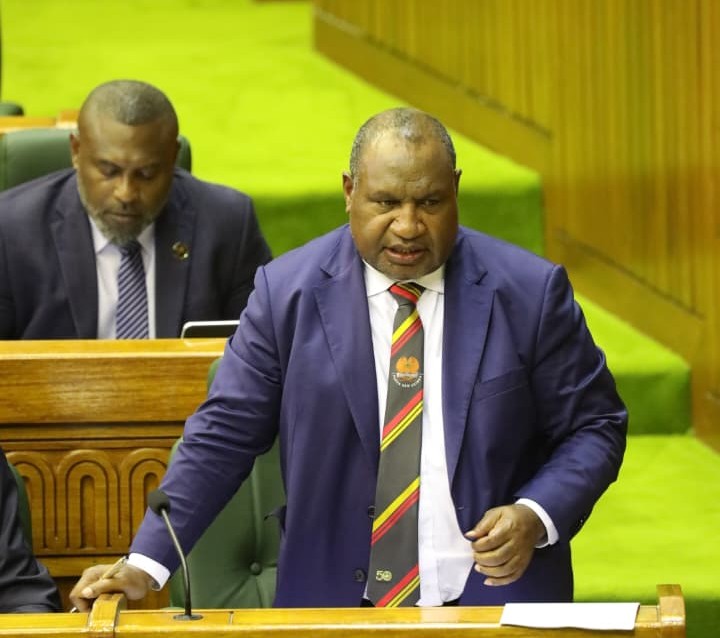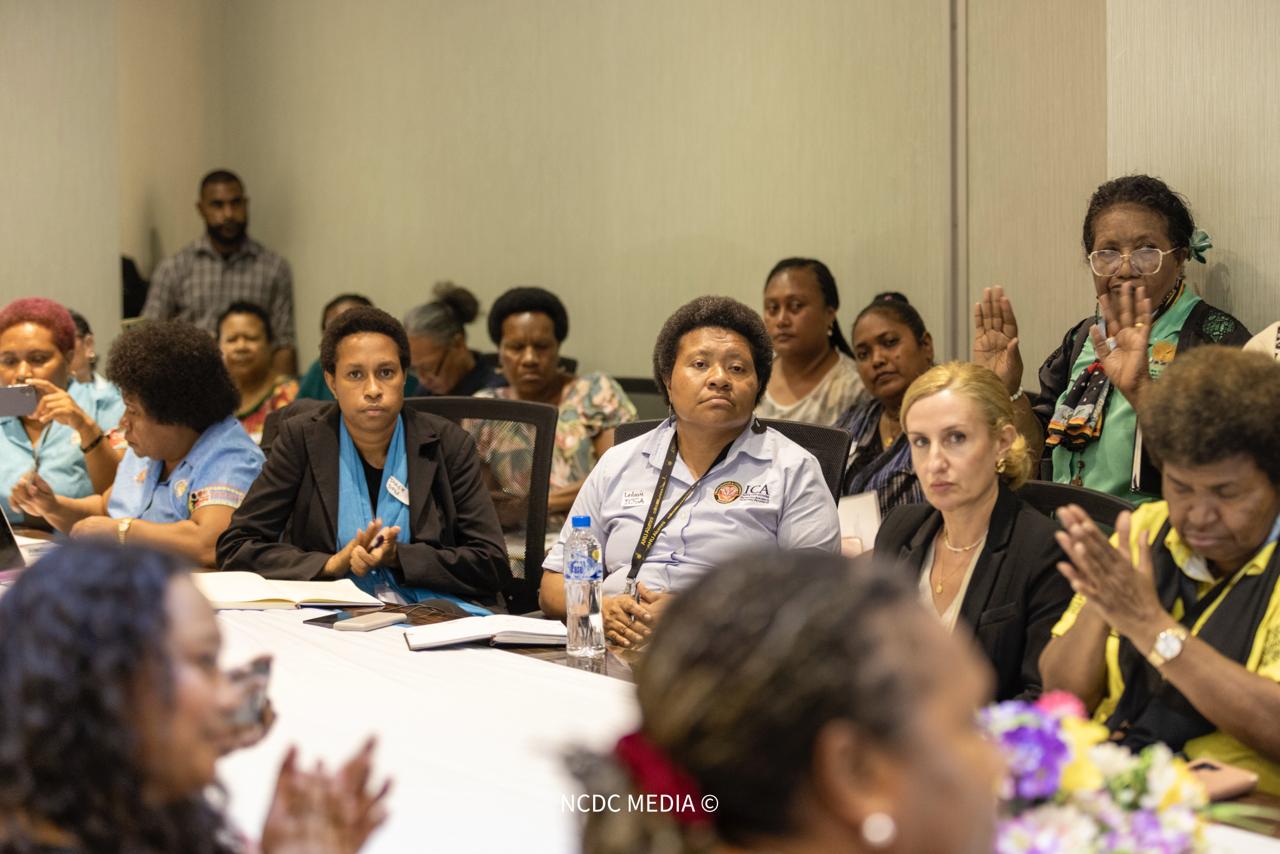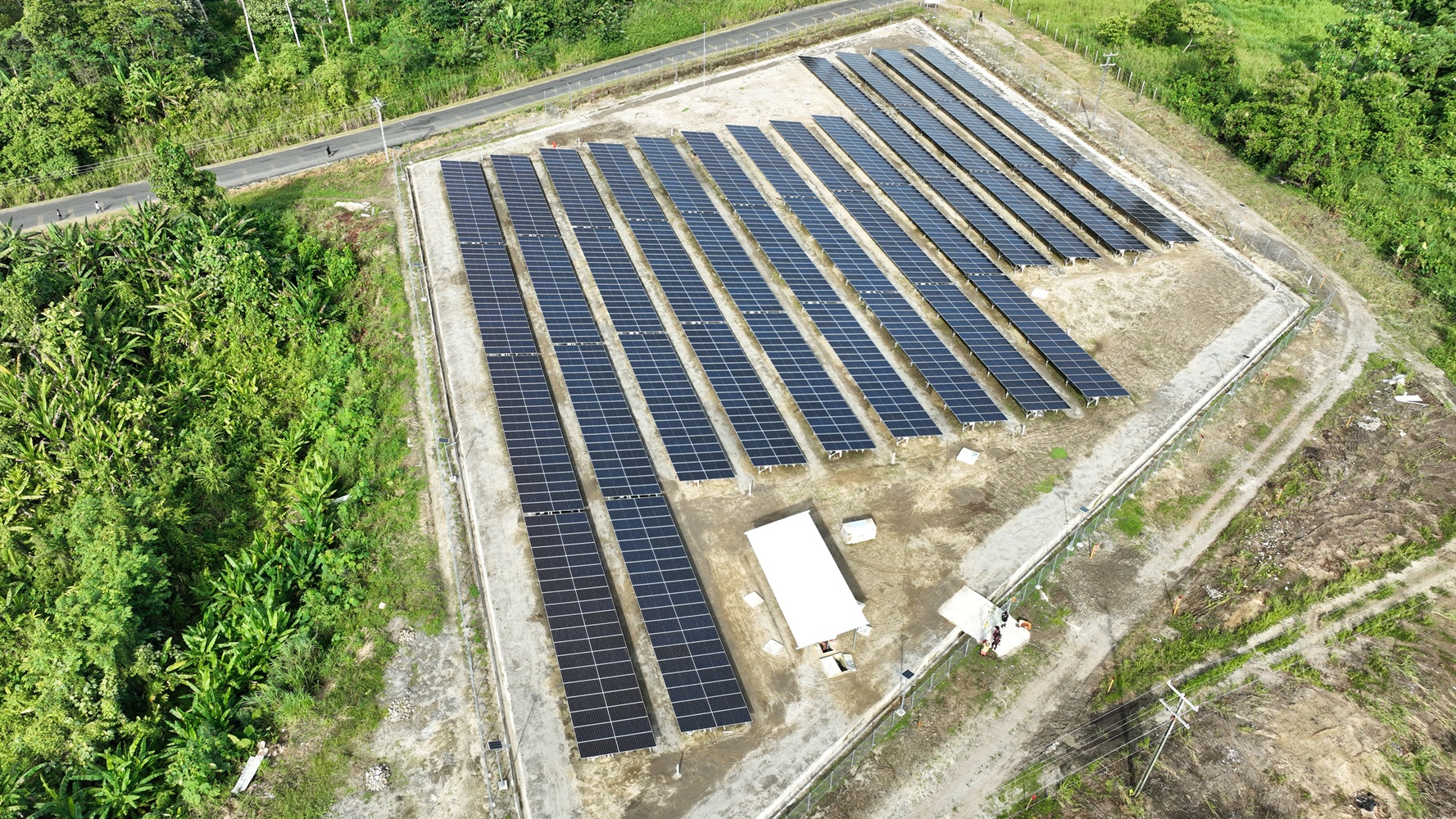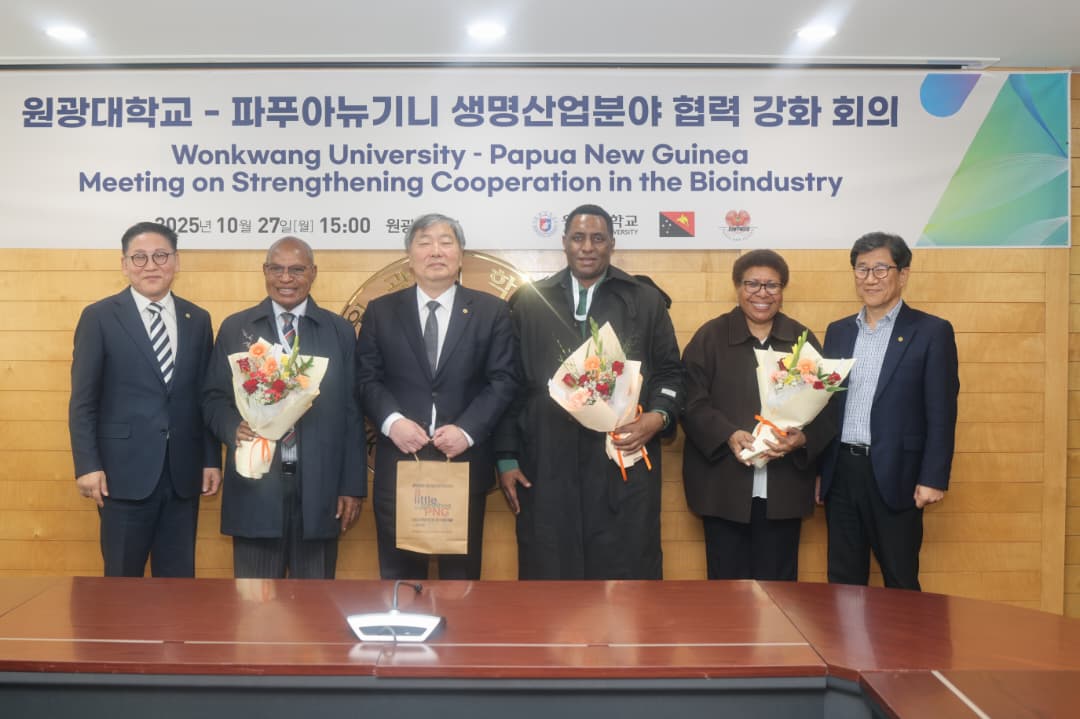Meet Charlie Koneng, a man on a mission to fight open defecation by leading the campaign in communities in Nawaeb LLG, Morobe Province to get every household build a toilet and learn the importance of personal hygiene to keep diseases at bay.
Charlie left his wife and children behind to be an advocate against open defecation.
As one of the over 200-250 Klinpela Komuniti Projek (KKP) motivators , he left behind his family’s poultry business, and spends months as a volunteer with World Vision staff, walking from one community to the next, promoting healthy living.
Charlie was met by World Vision staff again, this time in a-plastic compound, a peri-urban settlement a few minutes' drive away from Lae city.
This time he had created a model community for the entire Nawaeb District to learn from.
Plastic is a community that has risen from plastic makeshift houses to a more permanent community setting and now an Open Defecation free Community.
It wasn't a peaceful community to handle in the peri-urban settlements, but Charlie survived to make the change happen for the innocent children of Plastic compound.
Working under the European Union-UNICEF PNG Government WASH project, World Vision officers had a different perception of this slim, tall, and easy-going lad from Finschafen and Nawaeb parentage when they first met him.
From the first impression, they saw a villager who walks into the World Vision office in Lae.
It was not until he invited the World Vision WaSH officers to celebrate the achievement of a first community that had declared itself open Defecation free through his effort.
He is highly committed and speaks with authority , and the tone of his voice was of hope and courage, moving the audience to cheer in support. Not only that, he walked the talk as a health motivator.
Charlie had to build himself a safe toilet, to know by heart, and practice proper hand-washing and hygiene key messages in order to teach others.
In a quick interview with Charlie, this is what he said;
“I have worked with World Vision in this project for one year three months as a volunteer. I don't get any allowances, but I will be with World Vision through to the end.
“ I have seen many changes in my personal life. I have learned so much about sanitation from the world vision staff.
This is a knowledge they could only spend me thousands of kina to learn in a classroom, I had it for free,” Charlie said.
Charlie said the most important principle about changing a community is for the person to change in order to be an agent of change.
The Klinpela Komuniti Projek co-funded by The European Union and UNICEF initially introduced tippy taps to the community through World Vision as the key implementing partner, however, Charlie from his own innovation created a bamboo hand washing station for 38 households to use.
“Not all community members could afford to buy 25 litres containers for tippy tap. I had to introduce bamboo taps’’, Charlie answered when asked about his innovation.
He was frank but somewhat passionate in his selection of words when commenting about the seriousness of creating Open Defecation free Communities
The most important of his innovation are better explained by himself in these words;
“When I tell these people to do tippy taps, their excuses are always on the cost of buying plastic containers and soap for hand-washing.
Now that I introduced the use of bamboo as tippy taps and ashes as a substitute for soap, they have no reasons left but to adopt the safety measures.
Bamboo is available in abundance to the community. What we did was we got the big bamboos, boreholes through hollow chambers, blocked both ends, and made a hole into the bamboo at one end as a tap. So once we tip one end of the bamboo, the water comes out.
The bamboo can hold more water than an 8-litre container’’
He has also taught his community the art of constructing a bamboo tippy tap.
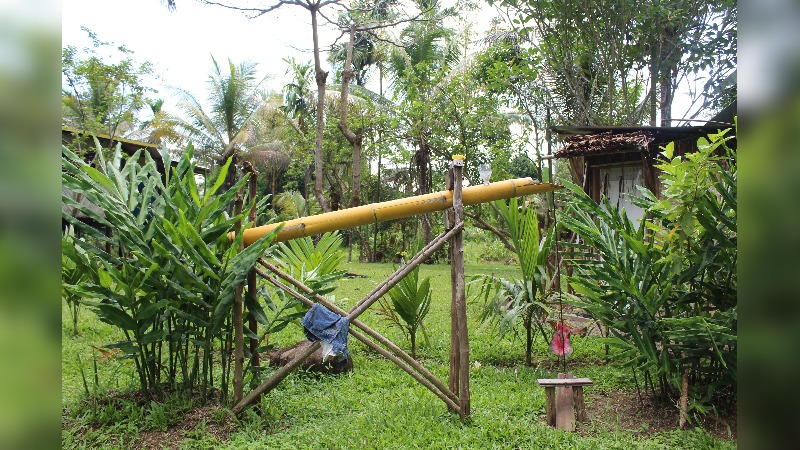
What amazes the WASH Officers most was how he could modify a sato pan designed for squatting into a sit on a toilet bowl. With no plumbing background and experience, Charlie had learned from creativity.
One of such creative modifications was a toilet seat he changed with sato pans for Cletus Miembei, a 66-year-old person with a disability in plastic compound of the Nabak Local Level Government constituency.
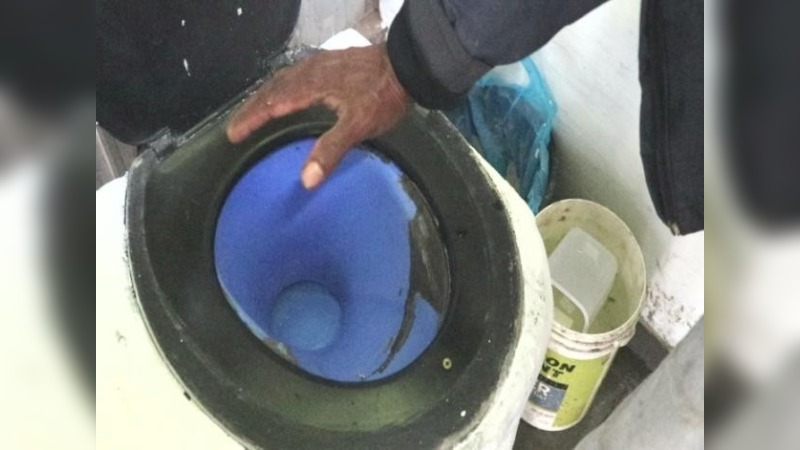
Nawaeb District invited Charlie to exhibit to the public his simple tippy tap innovation during the Global Hand-washing Day on October 15.
From a simple villager , Charlie is now a recognized village Health Motivator. With no training, he had learned from World Vision WaSH technicians and field officers by observing and creating his own model.
With confidence, he said, “I will try out a leech pit at those communities in swampy land where we can't dig pits. I will build it up from topsoil up and place steps to climb up to use or build it under a high post house”.
From a humble semi-skilled villager and little of a WaSH specialist, Charlie has equipped himself into an expert of sanitation innovation, a resource person mentored through implementing the EU-UNICEF, PNG Government Klinpela Komuniti Projek, implemented by World Vision, Nawaeb District, Health and Education department as a pilot phase of the PNG National WaSH Policy 2015-2030.

